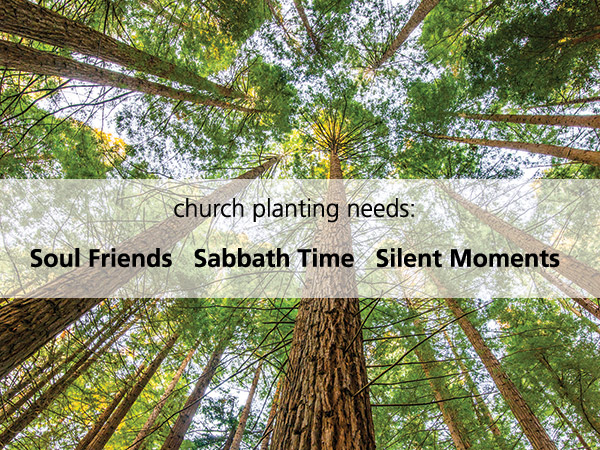This morning I had breakfast with a church-planter. Starting a new worshiping community is a different beast from pastoring an established congregation. To quote The Wizard of Oz, “Now that’s a horse of a different color.”
“There has been vocational confusion, dark times,” my church-planting friend told me, now four years into this endeavor.
Of course, I thought, there has to be vocational confusion and dark times.
After all this pastor has had to wear more hats than I can imagine: visionary leader, construction foreman, preacher, worship leader, volunteer organizer, community developer, grant writer, meal planner, non-profit director, fundraiser, coffee-shop barista, spiritual director, cheerleader, landlord, entrepreneur, marketer, community events organizer, theologian, evangelist, custodian, ad exhaustium.
And all that to help birth a community the vision for which is still taking shape.
One wonders how pastors of new church plants survive the beginning years. What allows those who sustain this kind of ministry to do it? What keeps them from hanging up their stoles and dawning the barista’s apron full time?
I suspect that though this work is a horse of a different color, the practices that have sustained pastors throughout the centuries in the widest variety of ministry settings haven’t changed. They are the practices that keep us most open and available to God, the practices that help us discover and honor our truest selves, the practices that help us stay true to the voice of vocation speaking to us from deep within.
There are many, but three strike me as particularly relevant: having a soul friend, keeping a sabbath, and practicing silence.
Have a Soul Friend
I pastored churches for eight years, and I don’t think I would have survived without my soul friend—a spiritual director. My spiritual director created the space once a month for me to do nothing but look at my life to discern how the Holy Spirit might be at work. His office was a space where I could cry, yell, laugh, and think. His office was a space where I could do the work of remembering who I truly am and why I was in this work.
When the demands of ministry begin to overwhelm us, our soul friends can create the space for us to remember our deepest center in the heart of God.
These friendships can take different shapes. A pastor can see a trained spiritual director, have a mutual friendship with another clergy person, or meet with a group of clergy friends to practice soul friendship for one another. (One warning about clergy groups: The minute they begin to become gripe sessions or mutual advice-giving sessions, run away fast. That’s not what soul friendship is about.)
Keep a Sabbath
Second, a church-planter should consider keeping a sabbath. Sociologist Judy Wajcam has argued that we live in an era of “temporal disorganization.” Because of technology, there are fewer boundaries on our time. Work spills into family and play in a way it never has before. And this is truer, I suspect, for church-planters than for other pastors. Church-planters often have no office to go to, no staff to meet with—they lack the structures of an institution to order their time. And without those structures, the work of ministry bleeds in to every second of every day.
We then can forget that it’s not our frantic agency that brings in the tides and holds the stars in the sky. There is Another at work.
And that’s why God gave us a day of rest, so that we could cease from work long enough, not just to rejuvenate (a good day off can do that), but remember that it’s not our initiative that matters in ministry, but it’s discerning and joining God’s initiative that makes the difference.
The work of getting things started is so close to the heart of church planting there’s all the more reason to stop once a week to remember: it doesn’t all depend on us.
Practice Silence
Finally, practice silence. In silence we get to know the voices that drive us—and often they are not the voice of God. We are driven by the need to succeed, to prove ourselves, to “get this ship off the ground” or “turn this ship around.” Many of those voices aren’t the gentle, wooing spirit of God, but are the voices of our own frail egos (and of our judicatory leaders). In silence, we can see them for what they are: smoke screens, concealing the real voice we need to listen to—the voice of God and the voice or own vocations, which, if we listen carefully enough, we might discover are one and the same.
We chatted for an hour, then my friend had to hurry away. He had another appointment at nine o’clock. And I knew he had another meeting that afternoon, because it was with a friend of mine to talk about small group ministry. Then back to the worship space tonight for the weekly community meal. Such is the life of the church-planter.
A life that can be sustained—and even flourish—when soul friends, sabbath rest, and silence give us the space to discern the voice of God, remember who we are, and rest in a Love that will not let us go.
The Rev. Dr. L. Roger Owens is associate professor of Christian spirituality and ministry at Pittsburgh Theological Seminary and teaches courses in the MDiv, Doctor of Ministry, and Continuing Education programs. Before coming to PTS he served urban and rural churches for eight years in North Carolina as co-pastor with his wife, Ginger. He has written multiple books including The Shape of Participation: A Theology of Church Practices which was called “this decades best work in ecclesiology” by The Christian Century.

